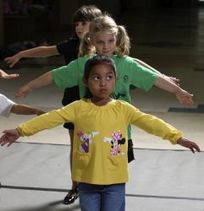
We've all done shows with them. Maybe they've been our own, or belong to our friends, but usually they are complete strangers, for a short while at least. William Claude Dukenfield issued a most explicit warning against allowing them near the audience or himself.
The have been lauded and lamented in tale, song and dance. Their transition between what they are now and what they will be has been grist for so many plays, films and TV shows that their theme rivals that of the battle-of-the sexes. What am I talking about! They are the initial skirmish in that battle. I am speaking, of course about kids, youthful protégés of the thespian arts, audience melters, scene stealers, and melodramatic maniacs. This column is not a diatribe against kids. Actually I'm quite grateful to them, wary of them, perhaps, but grateful nonetheless. Why? Well, working with kids keeps you young.
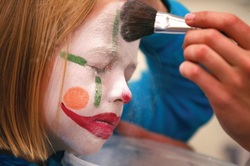
Yes it does, yes it does -- and don't you dare roll your eyes at me! Of course, to receive the maximum benefit of exposure to kids, rather like UV light treatment for a tiresome but intractable skin condition, it does helps to be a grandparent. You see once you have a chance to witness that the "mother's curse" coming true on your own children (the ones who gave you so much difficulty when they were juniors, eighth graders, two-year-olds—really take your pick) by your grandchildren you begin to realize that this phenomenon can be spread outside the family sphere and become an asset.
Oh yes, the "I-hope-you-have-children-that-behave-just-like-you!" can be exploited if it can be directed into the correct production. Let's face it: precocious kids are actors-in-embryo and a disciplined approach and a little leadership has brought out the potential star in the many children. Naturally working with kids is a two-edged sword. They generally are unfamiliar with focus until you equate it with video games. But they memorize well—better than me these days - and absolutely love the opportunity to work with other adults who are, wonder-of-wonders, NOT their parents, especially if you as the director go out of you way to treat them like little adults.
OK, OK - they're not always going to behave like little adults, that's a given, but they loved to be encouraged to do their best. And once you get all of them in chorus to sing in unison, as opposed to a staggered choir, even notes that are not "spot on" in terms of pitch sound well to family in the paying seats. Having kids in your shows encourages whole families to get involved and for chronically short-handed groups this is a bonus. Resources open up when you do "family shows" as people-who-know-people-whose uncle in the city might just let your group borrow a certain precious item because you've given their children an enriching experience.
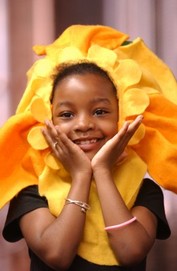
And it is an enriching experience because kids get to work with adults more equally than parents and teachers can manage, though most I know do their best. The parents have to parent and the teachers teach, after all that's their jobs, but adults in theater get to interact with kids on a different plane. Kids give you back the viewpoint you might have forgotten, they remind you that some people are born actors and other need a lot of coaching, but best of all they look at you with shining eyes that are having so much fun all the while helping you keep your group viable and lively.
Yes, every group needs to do an adult show, that's essential too. But consider the kids, if you haven't, and enjoy if you have. Using kids is enlightened self-interest for any community theater group. Just one hint: try to pick a show with some mature elements in it for the kids, as all kids, but especially teens like to stretch their talents and perceptions and will work much, much harder for you than if you select a show that they perceive is too young for them.
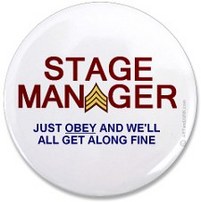
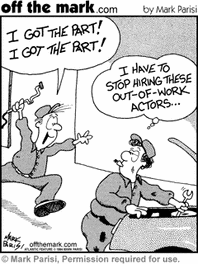
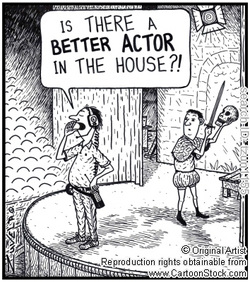
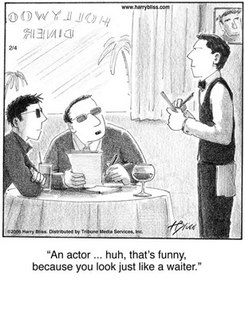



 RSS Feed
RSS Feed